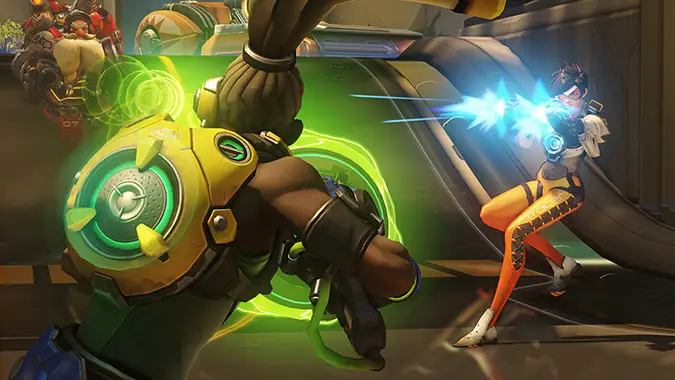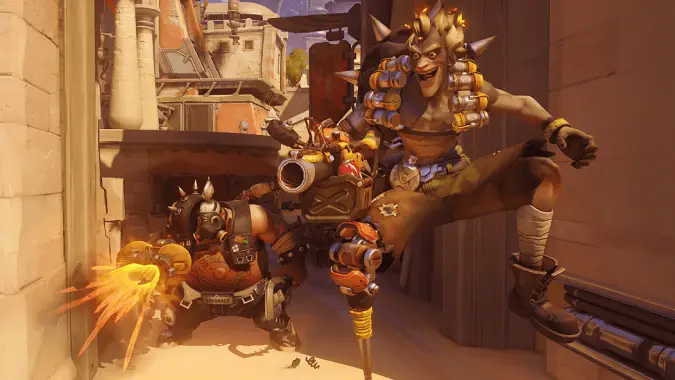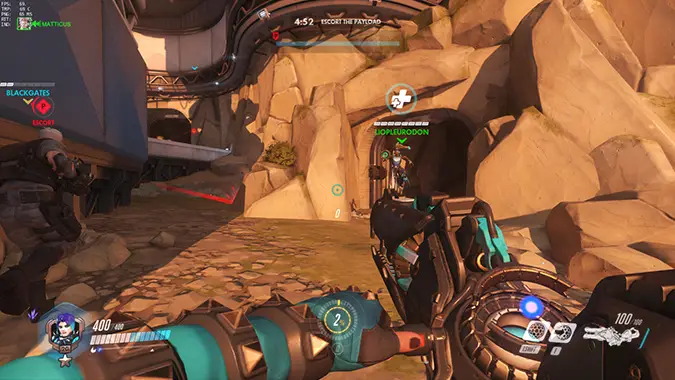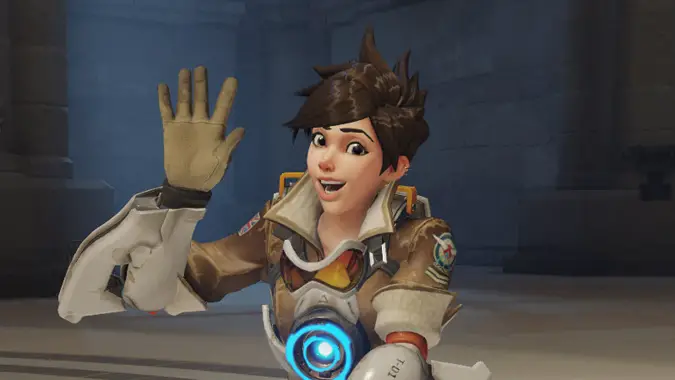Simple Overwatch tips for competitive play

This week, we’re not going in-depth with the meta or character choices. We’ll touch on a few character choices briefly, but we’ll save the full analysis for another day. This week, we’re going to check out competitive mode and the ways which you can maximize both you and your team’s chance of success. Scott wrote a great piece the other week regarding teamwork in Overwatch, but what happens if you’re playing alone or don’t have any friends online? It can be a challenge to coordinate efforts with random players. We’ll be focusing on what you, as an individual in solo queue, can do to maximize the odds of your team winning.
To start, I usually open most matches as a neutral pick like Zarya or Soldier 76. Zarya can be a massive wrecking ball if left unchecked (and she’s my favorite, for sure). After some time has passed or if certain objectives are completed, a hero change might be warranted for the next stage of the match (for example, after capturing the first point on Numbani, it converts to the escort objective).

Increase your own awareness
Enemy ultimate notifications are generally louder than those of your own team — and the actual callout tends to be different, too. Spend some time listening to ultimate callouts and learn to identify those which belong to an ally and which belong to an enemy. If you hear a Junkrat’s Fire in the hole!, that’s the sound of an enemy Junkrat looking to hit a perfect Riptire, so spread out from the rest of your team. Likewise, when a friendly Zarya says Fire at will, you can unload your own follow-up ultimate or just shoot everything you have in the area.
Speaking of awareness, having the kill feed turned on in the top right corner can help provide you with valuable information in terms of who’s alive and who’s not. Did three of your teammates just get neutralized? Best to hang back and wait for the next push. Did your team’s Reaper manage to knock out both opposing supports? Time to capitalize and make a move to apply some pressure. It’ll be quicker (and safer) than constantly pressing tab to see the full status screen even though I still do that anyway.
I’m a victim of doing this and should take my own advice, but constantly look around. Between heroes like Tracer and Reaper, it’s often easy for opposing teams to come in from different directions. If everyone on your team is looking one way, scan a side hallway or keep your crosshairs trained upward.
Tip: Pressing tab also displays the ultimate status of your team based on the asterisk underneath their name. You can see who’s is available and plan your moves accordingly.

Don’t overextend
When I’m playing in groups with my friends, I’ll remind them every so often to not overextend on defense — that is, don’t range so far away from your team, or your objective, that you can be picked off or caught unawares. One of the worst things we can do is try to defend a point 4 on 6 and lose the engagement because now we have to hold the final capture point for an exhausting 7 or so minutes. On the other hand, I’d say at most one player can push up to quickly scout and determine what heroes the other team are running. If positioned properly, a Widowmaker can even get a pick off before immediately bailing and falling back to the rest of the team.
The first capture points tend to favor the attacking teams. Their spawn points are generally closer to the first capture point compared to the defender spawn point. However, that changes with the last capture point as the final point heavily favors defense much more.
Tilting
If you’ve played Hearthstone (or poker), you’ll have a good understanding of what it means to tilt. It can happen in any game, any moment, and at any time. When you’re playing on tilt, you get flustered and start making bad decisions like chasing opponents instead of sticking to map fundamentals. It may not be as prevalent in team games, but one player can be enough to set off the whole team so that all six players end up playing sub-optimally!
I was in a match the other night with a few friends queueing together and we ended up being paired with a Mei. The unfortunate factor is Mei wasn’t being relevant in the match. She was getting picked off and wasn’t a threat. We suggested in team chat that perhaps Mei should switch to something that would have had a larger impact on the match, but either we were all ignored or just disregarded. One of my teammates just started going off on voice chat and ranting about how they were doing nothing and not contributing at all. I gave him a few seconds to vent and to just get it off his chest before trying to settle him down. Once that happened, everyone else started to chime in and I could tell that we weren’t hitting our shots, we weren’t working as a unit, and our payload was going backwards.
How do you address that?
Settle and calm the team down first. Remind everyone to take a breath and that what’s done is done. Recapping the past 2 minutes of a match and what went wrong isn’t going to help us going forward while the match is still live. It doesn’t help anyone and focus is going out the window. Go back to basics and reassess what stage of the map the team is on. Are you assaulting a point or moving a payload? Are you playing defense and getting pushed hard? Tell your team to drop back and regroup. It’s often better to trade space for time to give your team time to set up and establish a favorable defensive position around a choke or any kind of archway. Press tab and look at the enemy roster to see what characters are being played and start throwing suggestions on what to counter, or even take the initiative and change your hero to something that can help address the situation. Pharah pounding away at your team? Change it up to Soldier 76 and start burst firing her down. Twinston (that’s two Winstons) and a Zarya being seemingly unstoppable? Break out the Reapers.
Tip: After a particular devastating defeat, some players inevitably clam up and stop talking. They start playing on autopilot by just being in a solo queue mentality instead of trying to work with the team. Keep doing what you were doing and call out ultimates, key hero locations, or hero targets. This is something I picked up from my time in League of Legends but encouraging my team to focus down heroes like Mercy, Reaper, or Winston.

Voice
If you’re in a group with other players, you automatically join the group’s voice chat. I recommend switching over to team chat instead so you can loop in and coordinate efforts with other players. Maybe they’ll chime in or maybe they won’t, but at least you’ll be in a more comfortable situation since you’re already communicating with people you know — And who knows, maybe you might run into that Mercy or Reinhardt player who routinely plays those kinds of roles and you can add them to your friends list to enlarge your social circle of Overwatch players.
Tip: By default, pressing P allows you to switch and join your team’s voice chat or your group’s voice chat.
I’m sure most players can agree the first season of Competitive Play is going to be a wash. Overwatch director Jeff Kaplan addressed points about overtime and sudden death in a post not too long ago. By attempting to implement those changes for season 1, we would have lost out on being able to play it for the inaugural summer season. Better to have a slightly unpolished format out there now and give players a new alternative mode instead of continuing to push back development repeatedly. Now the developers should have more data to work with from what was accumulated during this first season.
Please consider supporting our Patreon!
Join the Discussion
Blizzard Watch is a safe space for all readers. By leaving comments on this site you agree to follow our commenting and community guidelines.
 @Matticus
@Matticus



